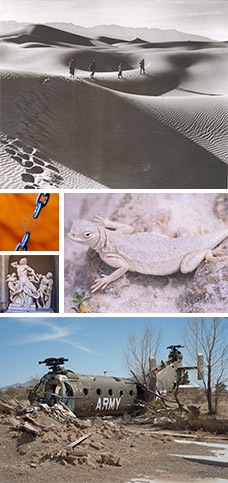
Medical Preparedness and Response for Bombing Incidents (MPRBI) Course Description
Course Overview
d. It is in thi
s rite that the
whole secret of these savage Indians resides. To me
, its force seemed
to be symbolize
d by the rasping stick, a piece of curved wood covered with notches which, for whole nights, the Peyote sorcerers rhythmically scrape with little sticks. But the strangest part is the way in which these sorcerers are recruited. One day, an Indian will feel called to handle the rasp. He goes to a sacred hiding place in the mountains, where for thousands of years there has lain an incredible collection of rasps which other sorcerers have buried. They are made of wood, the wood of warm
- soil, it is said. The Tarah
- umara will spend three years living on thi
- s plantation of rasps and, at the end of the third year, he return
- s—the possessor of the essential rite. Such is the life of this s
- trange people over whom no civilization will ever
- gain control. To visit the Tarahumara is to ent
- er a world which is incredibly anachronistic a
- nd exists in defiance of this age. As far as I am
- concerned, this is so much the worse for this age. S
o it is that th
e Tarahumara call themselves, feel themselves, believe themselves to be a Primeval Race, and they prove this to be true in every possible way. A Primeval Race: today no one remembers what this is, and if I had not seen the Tarahumara, I might well have believed that the expression contains a Myth. But in the Tarahumara Sierra many of the Great Ancient Myths come back to life. The Tarahumara do not believe in God and the word "God" does not exist in their language; but they worship a transcendent principle of Nature which is Male and Female, as it should be. And they wear this principle on their heads like Pharaoh Initiates. Yes, this headband with two points which they use to encircle their hair indicates that they still have in thei
consciousness
of a high natural selection; that they feel themselves to be, and that they are, a race connected to those forces, originally both Male and Female, with which Nature did her creative work. Similarly, Chinese who are initiated into the true traditions of their fathers also wear two braids down their backs. And Moses, in his stone statues, has two horns protruding from his forehead, one for the male on the right side, the other for the female on the left; some Tarahumara also wear their hair pulled back like horns. And this recalls, along with the statues of Moses, certain Maya or Totonac statues which have t
wo points or two holes on the
forehead, but placed one abo
ve the other, like the vestiges of an ocular system
that has petrified. Many Tarahumara Indians, whether because they do not wish to discuss it or because they have
forgotten
- what it means, claim that this arrangement is the result of chance, and that they use the headband simply to hold their hair in place. But I have seen Tar
- ahumara sewing headbands so that the points would hang down; and most importantly, I have seen the Peyote priests at t
he moment the
y perform this rite, which is by nature male and female, throw their European hats on the ground and put on the two-pointed headband, as if they wanted to show by
this gesture that they
- were entering the circle of Nature with its two magnetic poles. There is an undeniable initiation in this race; he who is close to the forces of nature participates in its secrets. But this initiation cuts both ways, so to speak. For if the
- Tarahumara are physically strong like Nature, it is not becaus
- e they live close to Nature in a materia
- l sense, it is because they are made of the same substance as Nature and because, l
ike all authentic manifestations of Na
ture, they are born of an original blend. One migh
- t say that it is the na
- All instructional materials and handouts.
- tural Unconscious which not only repairs in them the da
- Funding for the instructional team (including travel and per diem costs) and all instructional materials.
mages of fatigue but also corrects those natural perversions of a great principle by which they explain the existence of all infirmities. On the one hand, they show their initiation by the signs which they scatter
Contact in haunting prof to arrange a class in your area or call 575-835-5054.

